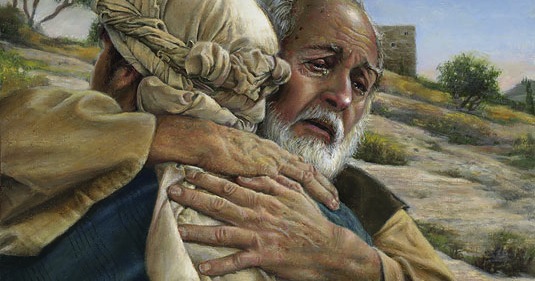Acts 16:9-15
Revelation 21:10, 22-22:5
John 14:23-29
Dear Friends,
In Chapter 14 of John’s Gospel, Jesus explains the new relationship his disciples will have with him as the risen Lord. To those who love him and continue with his teaching, Jesus says that he and the Father will come and make their home with them. Even more is promised: the Father will send the Holy Spirit to come as a guiding presence.
Chapters 21 and 22 of The Revelation to John contain a great vision of the City of God. Contrary to our usual thinking of “going up to heaven,” the City of God comes down to the earth. Vivid images are used to describe this city: it is built and adorned with the most precious, valuable stones and metals; filled with the perfect light of God; healed and sustained by life giving trees and crystal pure water. Nothing unclean or impure can be there. All is well.
In Acts 16, we hear of a vision given Paul to take the message of Jesus Christ into Greece rather than continue in modern day Turkey. Paul makes his first contact and first converts to faith in Christ in the Greek city of Philippi.
Comment: The scriptures contain several images/visions of heaven, the throne of God, the presence of God, the city of God – some of which may seem to contradict one another. Do we “go up” to heaven, or does God “bring down” his presence among us? As often is the case, it may be the answer is, “yes, both.” I am comforted by my awareness of God’s presence coming into my life just as Jesus describes – the Spirit coming to be with me to guide me (even if I often don’t listen or follow poorly). And the visions of Revelation, of which this is the final, describe both the experience of people gathered into God’s presence “away from this life” (see Revelation 7) in line with our usual understanding of “heaven”, and this final vision of God coming down to be with us in perfection. In this way, I have hope for those who have died, and I have hope for an unpredictable future “day” when God’s light and presence will fill the earth.
David S. Robinson, Rector
Saint Matthew’s Episcopal Church
Maple Glen, PA 19002








